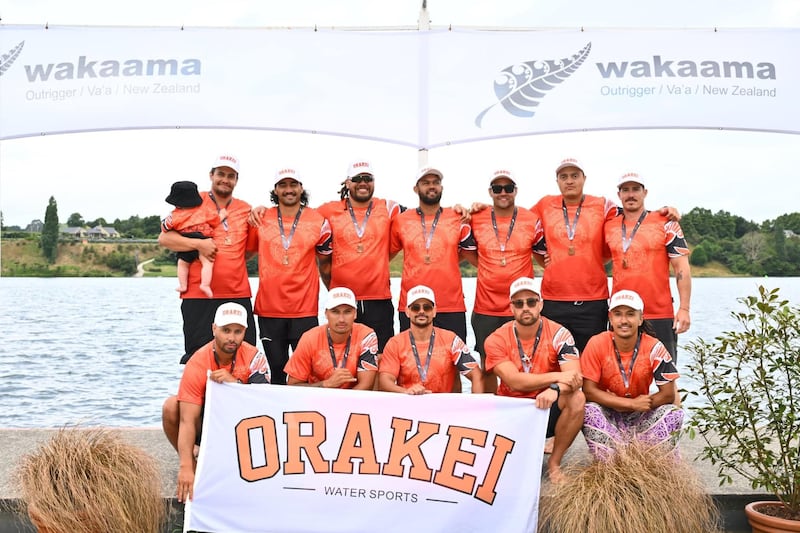With the Waka Ama World Sprint Championships on the horizon, many teams across the motu are finalising preparations for the five-day competition in Hilo, Hawaii.
finalisingWater Sports captain Jackson Tamaariki-Campbell says his team is training together four times a week ahead of the event. “If you want to compete against the best, you’ll need to put at least five days a week in, on and off the water,” he says.
Ōrākei Watersports is one of more than 208 New Zealand teams headed to Hawaii for the world sprint champs. Tamaariki-Campbell highlights the diverse composition of their team: “Old paddlers that haven’t been paddling for a while, a few of us have come back after 10 years off the water. But also bringing in new paddlers, close friends of ours who were interested in the sport.”

‘Uncharted waters’
John Harrison (Seymore) of Ngāpuhi is relatively new to the sport, having joined the team in March 2020. He competed at his first national event at Lake Karāpiro earlier this year.
“It’s difficult because, when you go for a run, you can just stop when you feel like it but, when you’re out with the boys, you can’t just stop paddling. You gotta keep digging because people can feel you if you stop paddling or if you’re acting like you’re paddling.”
He also talks about the physical demands of the sport: “It’s taxing on the upper body, and I started off pretty big and there’s not much room on those waka... which forced me to focus on my eating. I’m a foodie, so focusing on that was probably the hardest thing.”
Global growth and cultural connection
Waka ama, also known as outrigger canoeing, is a traditional Polynesian sport that has seen significant global growth in recent years. This year’s World Sprint Championships, featuring over 19 countries, highlights waka ama’s increasing global appeal. Nations from across the Americas, Europe, Asia, and the Pacific will come together to compete, showcasing the sport’s broadening reach and the unifying spirit of competition.
Tamaariki-Campbell and Harrison say waka ama helps them connect with their identity as Māori. Tamaariki-Campbell elaborates: “We all come from a waka, so jumping back on a waka as a sport, I think reconnects us all.” Harrison says, “Being out there, being confident on the water has helped me build confidence and a relationship with the water, which has helped me now be confident to go diving. That part helps me source kai for whānau too.”


